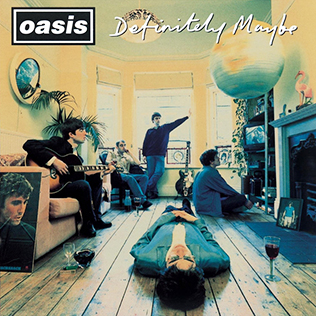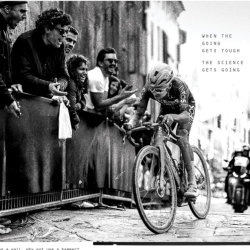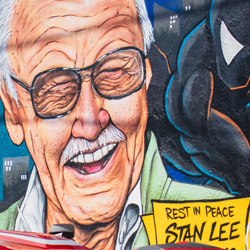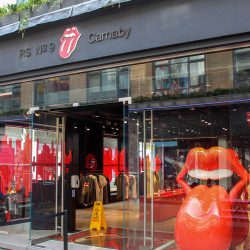No Way Sis in this title is, of course, a little joke, as they were famously the official tribute band for Oasis. And I’m writing about them (Oasis, not No Way Sis) because, as many of you probably know, the band are getting back together. For those not in the know Oasis are an English rock band that formed in 1991, and became one of the most globally successful groups of the Britpop era. Their second album, (What’s The Story) Morning Glory? (1995) was one of the best-selling albums of all time, and the biggest-selling album of the ‘90s in the UK. And in 1996 they performed at Knebworth in England, to 250,000 people over two nights, with apparently 2.6m people applying for tickets. The Independent described it as ‘one of the most infamous gigs of all time’. And then, in 2009 the band split — with the Gallagher brothers fighting in the media over the next fifteen years.

If we fast forward a bit… what came next, quite recently in fact, was the announcement of a reunion tour in the UK and Ireland, planned for next year. This has more than likely been timed alongside the release of the 30th anniversary edition of their debut album, Definitely Maybe (1994), and, next year, the 30th anniversary of (What’s The Story) Morning Glory?. This tour is called Oasis Live ‘25, and it’s estimated that it could bring in around £400m in ticket sales and other add-ons (with £50m each going to Liam and Noel). As you may expect, the hype was real, and Oasis albums have ‘stormed the charts’ ahead of their reunion. Tickets for the tour went on sale with event platform Ticketmaster on Saturday 31 August, and sold out within 10 hours. But that’s only part of the story.
Hundreds of thousands of fans missed out due to Ticketmaster’s website either crashing, thinking they were bots rather than people and booting them out, or they’d be stuck in lengthy queues for hours, only to get onto the site and find that tickets had been vastly inflated due to ‘surge pricing’. This isn’t the first time Ticketmaster’s platform has buckled under pressure, either, with criticism for the same thing in 2022, for Taylor Swift’s Eras tour. In terms of the recent pricing issue, though, some blame Ticketmaster for this strategy, while others say it had to be signed off by the artist themselves, and therefore Oasis are the ones to criticise. Perhaps it was a bit of both. Either way, it leaves fans angry.
As a result, and the subsequent fan outrage online, the UK government has said there will be an enquiry into dynamic pricing, with Culture Secretary Lisa Nandy saying ‘That is something that we’ve seen a lot more of recently, and not just tickets and West End tickets, but we also see it on airlines and trains, where there is that sort of peak time.’
Writing on LinkedIn, author Chloe Combi talked about how ‘culture is broken unless you have seriously deep pockets’, and that ‘Oasis floor tickets are being upsold for just under £1000 each’, making something like this reunion gig inaccessible for all but the most privileged few. This is brought into focus by the fact that Oasis are increasingly popular with Gen Z, who are even less likely than millennials and Gen X; in terms of being able to afford exorbitant ticket prices. In addition, around this time the boss of reseller ticket platform Viagogo defended inflated ticket prices, saying it was legal practice. Even the arguably more ethical platform Twickets has come under fire for a £138 ‘processing fee’ for reselling Oasis tickets.
So if business leaders (and even artists) are going to hide behind legalities when it comes to exploiting fans and customers for in-person events and so on, then maybe government regulation is necessary. For now, though, the ‘price of culture’ is something fans will have to live with.
Featured image: Mantas Hesthaven / Pexels
































